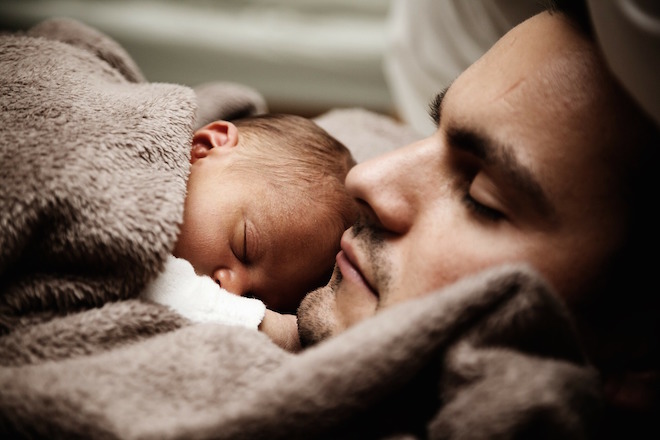Uh-Oh. That’s Not Good! Part 1
When the boys grew up, Esau was a skillful hunter, a man of the field, while Jacob was a quiet man, living in tents. Isaac loved Esau, because he was fond of game; but Rebekah loved Jacob.”
Genesis 25:27-28

In today’s and tomorrow’s devotions, I want to speak specifically about parenting. These devotions will be directly relevant to those of us who are parents, of course. But even if you do not have children, these devotions can help you to be an encouragement to your friends who are parents and also to help them raise healthy children who know the love of God.
As we read along in Genesis 25, we come upon the story of Isaac and Rebekah and their sons. Of course, before we know about the sons, we learn that Rebekah “was barren” (25:21). Yet when Isaac prayed for her, she was able to conceive. So far, so good.
But then we learn that “the children struggled together within her” (25:21). Rebekah would give birth to twins. That’s the good news. The bad news is that they were already struggling with each other before birth. Not a good sign. Moreover, the Lord told Rebekah that the “two peoples born of [her]” would be divided and “that the elder shall serve the younger,” which was a formula for disaster in the Ancient Near Eastern culture (25:23).
But, as the story continues, we learn that the conflict between the two sons wasn’t just a matter of unhappy DNA. According to 25:28, “Isaac loved Esau, because he was fond of game; but Rebekah loved Jacob.” As we read this, we can’t help but thinking, “Uh-oh. That’s not good.” No, not at all.
First of all, it appears that Isaac loved Esau more than Jacob because of what Esau was able to do for Isaac. A skillful hunter, Esau could bring back game that delighted his father. Isaac’s love is described not as a self-giving love but rather as a selfish response to what Isaac gained from his son, namely, good food. Whenever parents love their children for what their children produce, when parents love their kids because of what the kids do for the parents, we have something far less than genuine, godlike parental love. In this situation, children don’t really experience love at all; rather, they encounter a version of approval that is dependent on their performance.
I’m not saying that parents should not take joy in their children’s accomplishments. But, if our love is contingent upon what our children do, they will not grow up with an emotional foundation for healthy living. They may very well be driven by a desire to please us and then other parental figures. Or, they may turn in the opposite direction and figure they can never win so why should they try. More importantly, when our love for our children is contingent, then it will not help them know what God’s love is like. They will not be prepared to accept the free, gracious love of God poured out in Christ.
For those of us who are parents, this passage challenges us to consider the nature of our love for our children and whether it is like our Heavenly Father’s love for us. Yet there is still more in this text, to which we will turn tomorrow.
QUESTIONS TO CONSIDER:
Have you ever experienced “love” like that of Isaac’s for Esau? From your parents? From others in your life? How did it feel? What difference did it make in your life?
How can our love for children, our own children or children in our community, reflect God’s love?
How can we appropriately delight in the accomplishments of our children without communicating to them that our love is a result of what they do for us?
PRAYER:
Gracious God, thank you for this honest portrayal of Isaac, who loved Esau because of what Esau could do for him. Once again, we are blessed by the truthfulness of Scripture, that we might learn both what to do and what not to do.
Those of us who are parents ask for your help, Lord, to love our children as you love us: unconditionally, graciously. May we never give love as a prize or withhold love as a punishment. Teach us how we might rightly rejoice in the good things our children do. And help us to discipline them in a way that does not contradict or deny our love.
May all of us in our relationships with children embody your love, the love you have shown us in Christ, a self-giving love, a love that is prior to good behavior. May this kind of love be found not just in us but also in our Christian communities, so that children might grow upon a solid foundation of love to become healthy people who know how to love.
Thank you, Lord, for loving us before we do anything, say anything, or believe anything. Your love calls us, heals us, renews us, transforms us, and inspires us. Amen.
Photo Credit: CC0 Public Domain via Pixabay.com.

Mark D. Roberts
Senior Fellow
Dr. Mark D. Roberts is a Senior Fellow for Fuller’s Max De Pree Center for Leadership, where he focuses on the spiritual development and thriving of leaders. He is the principal writer of the daily devotional, Life for Leaders, and t...


